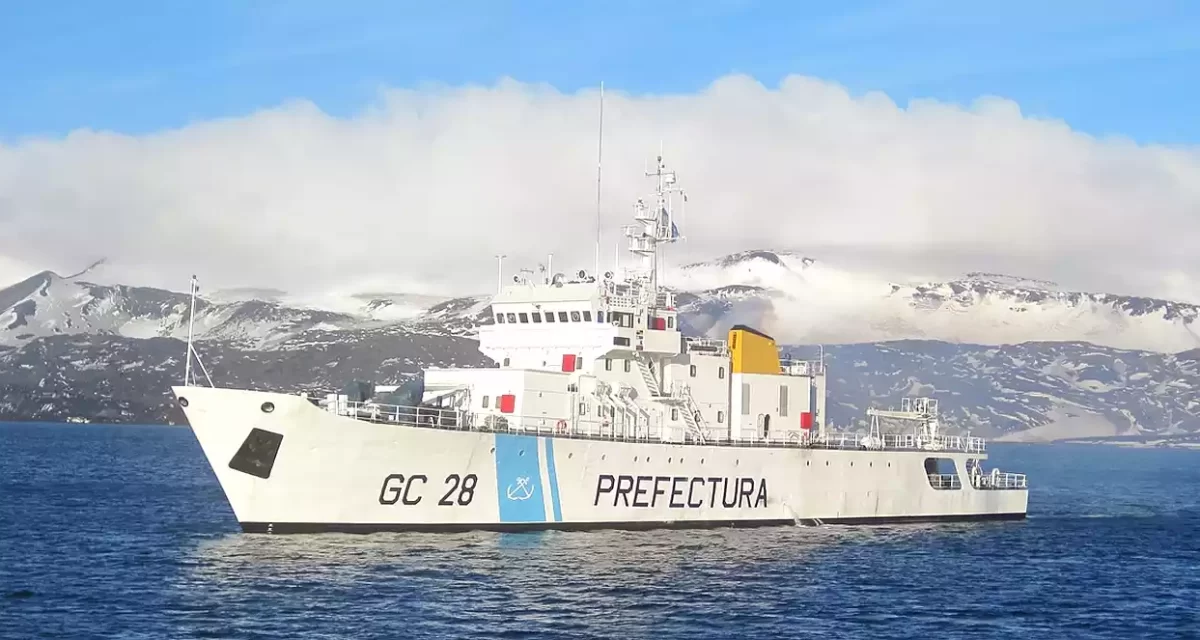Circular
Servirio`s News
BUSINESS CHAMBERS DEMAND SUSPENSION OF REGULATIONS OF PREFECTURA NAVAL ARGENTINA

A regulation of difficult compliance led to a confrontation between chambers, shipowners and the Prefectura Naval Argentina. They met at the Mar del Plata delegation last Thursday, trying to reach an approach to such regulation, which dates back to 2014.
A regulation of difficult application for smaller vessels. This is the OM No. 3/2014. It deals with the accumulation on board of sewage, sewage, kitchen and toilets that once stored and arrived at port of arrival must be evacuated by atmospheric tank to be sent to final disposal or treatment plant of liquid organic effluents.
Larger vessels can comply with this requirement. For smaller vessels it is impracticable, unfeasible, even for smaller vessels that do not even have a toilet.
The Maritime Authority convened different actors in the port area on the occasion of a rule that is not being complied with.
The regulation is comprehensive but at the same time impracticable, for several reasons.
Such is the size of the concern as the number of people involved. For example, Gonzalo Chaet, in his capacity as Executive Secretary of the Mar del Plata Regional Port Consortium, Mrs. Florencia Garrido, in her capacity as President of the Chamber of the Mar del Plata Naval Industry, Mr. Francisco Boccanfuso, as President of the Chamber of Shipowners of Rada y Ría y Costera Fishing, Dr. Sebastián Agliano, as manager of the Association of Coastal and Freshwater Fishing Boats, Dr. Carlos Casella, Manager of the Argentine Chamber of Owners of Deep-sea Fishing Vessels, Juan Jose Di Meglio, for the tour boats grouped in TURIMAR S.A., Sergio Merlini for the cruiser Anamora, Engineer Juan Darío Sócrate, Executive Director of the Argentine Chamber of Fishing Vessel Owners (C.A.P.A.), Miguel Di Constanzo, President of the Argentine Fishing Interests Union (UDIPA), Ayelén Fortunato, Manager of the ALFA Chamber, Dr. Fernando Manuel Rivers, President of the Argentine Chamber of Fishing Vessel Owners (C.A.P.A.), and Dr. Fernando Manuel Rivers, President of the Argentine Chamber of Fishing Vessel Owners (C.A.P.A.). Fernando Manuel Rivers, President of the Argentine Fishing Industry Chamber, Engineer Martin Norberto Morán, Safety and Hygiene and Environment Manager of the SPI Shipyard, Mr. Miguel Ángel Sánchez, Secretary of the Buenos Aires Naval Industry Association, Prefect Mario Cerdeira, Head of the Environmental Technical Division of the Environmental Protection Directorate and Major Prefect Rodolfo José Cattaneo, Head of the Mar del Plata Prefecture.
The enumeration of each of the participants is not for illustrative purposes. It is an illustrative way to dimension the problem.
Specifically, the existing problem in the Port of Mar del Plata, related to the prevention of pollution of dirty water from ships, under the requirements established by Ordinance N003/2014 (DPAM) and other complementary rules makes the port sounding board sound very loud.
Those present stated that the aforementioned regulation is impossible for smaller vessels to comply with.
They have requested the need to adapt and modify the current regulations on the matter, by virtue of the characteristics and dimensions of the different vessels, taking into account the date of construction, structure, number of crew members, type of navigation, autonomy, etc.
They have indicated that forcing compliance with the rule would not bring an environmental benefit, taking into account the lack of infrastructure for the treatment of waste, both in the city and in the port and other ports of the country.
As a result of their expositions, they urgently requested the suspension of the application of the Ordinance for small boats and requested the celebration of meetings with the Superiority, in order to review the points.
Ordinance 3/2014 referring to the “Rules on discharge of wastes and other matter into waters under National Jurisdiction” mentions among its various points the discharge into waters of wastes and other matter transported by ships, aircraft, platforms or other constructions, for the purpose of disposal, or deriving from their treatment on board.
It provides for the disposal of materials for purposes other than mere disposal, provided that their placement is not contrary to the objectives of the Convention.


